
Confucius made no claim that he was divinely inspired. Like Gautama Buddha, he refused to deal with questions concerning God, life after death and the unseen world. He discarded the idea of serving the spirits. He declared that the saintly men ought to take part in worldly affairs. He emphatically said that withdrawing from the world and associating with birds and animals are wrong since they have no affinity with us. We need to treat fellow people as equals. He asserted that we are bound to relieve and lessen the sufferings of the fellow people both directly and indirectly. We are bound to co-operate with fellow people to achieve common objectives. We need to restore order in a disordered society.
Confucius taught about the duties that the different units of society owe to each other. He said in great detail what he thought about those various duties. He grouped them under five heads: those of rulers and subjects; husbands and wives; fathers and children; elder and younger brothers and those of friends.
This story is from the October 2020 edition of The Modern Rationalist.
Start your 7-day Magzter GOLD free trial to access thousands of curated premium stories, and 9,000+ magazines and newspapers.
Already a subscriber ? Sign In
This story is from the October 2020 edition of The Modern Rationalist.
Start your 7-day Magzter GOLD free trial to access thousands of curated premium stories, and 9,000+ magazines and newspapers.
Already a subscriber? Sign In
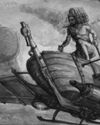
Who Is Afraid Of Scientific Temper?
The stories are very powerful. Over a period of time they gain a lot of traction. The places mentioned in the stories appear to be real and people attach a lot of meaning to them out of reverence. The symbols and signs used in the stories become core elements of propaganda. Soon it becomes a machinery that establishes a structure and with a body of evidence that is highly questionable. Not many try to challenge this because of its threatening stature. Who would dare to ask if the birthplace of Jesus or Ram exactly as it is claimed? Leave alone the historical, and archeological evidence that could support it.
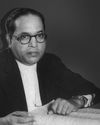
The Woman and the Counter-Revolution
There is one copy with a title ‘The Woman and the Counter - Revolution’. There is another copy of the same text with a title, ‘The Riddle of the Woman’. The Editorial Board felt that this essay would be appropriate in this Volume rather than in the volume of ‘Riddles in Hinduism’ - Editors of ‘Dr. Babasaheb Ambedkar Writings and Speeches’

THE IX SCHEDULE CREATION AND ITS EFFICIANCY
In case, any property of the citizen is to be acquired compulsorily by the State, there was also a fundamental right, under Article 31,for the citizens to get compensation. Immediately after the commencement of the constitution,many States brought agrarian reforms by legislations. When those enactments were challenged, in spite of the saving clauses found in article 31, those laws were held void as they violated the fundamental right to property of the owners/ zamindars. One such case was Kameshwar singh Vs State of Bihar [ AIR 1951 Patna 91]. The Union Government, then invented a novel devise, not only to save all such laws which were already declared unconstitutional but also to save any such law that may be passed, in future, by legislatures.

Social Justice and Humanism
Once prejudice against nontheists fades away, religious favoritism is removed from government, humanists are appreciated for our kind and reason-based thinking, then humanists everywhere can begin to focus full-time on promoting our science-based, compassionate, and egalitarian vision for our world. But we can’t wait until such a day dawns; we must assert ourselves today to make a difference in as many ways as possible, even if we have not yet realized many of our longstanding goals. To delay action on other fronts, when action could improve lives, would be to negatively impact the fates of many. This isn’t an acceptable course.
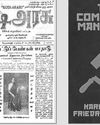
Preface to the Communist Manifesto
‘Communist Manifesto’, released by Karl Marx and Friedrich Engels was for the first time translated and published in Tamil by Thanthai Periyar in ‘Kudi Arasu’ serially from 4th October 1931 to 2nd November 1931. Afterwards Periyar commenced his International tour on 13th December 1931 and returned on 8th November 1932. He visited various European, Asian and African countries. Of them his stay in Soviet Russia was from 14th February 1932 to 19th May 1932. While he was in Soviet Russia, he attended the May Day celebration as State Guest and witnessed Moscow March on 1st May 1932. While publishing the Tamil version of the Communist Manifesto Periyar wrote a Preface to it in Kudi Arasu. The English version of the preface is as follows:
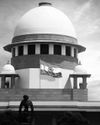
Interpretation which impede a just social order
On May 5, the Supreme Court of India declared as unconstitutional a Maharashtra law which provided for reservation to the Maratha community in education and public employment in the State. Four judges of the five-judge Bench wrote separate opinions, from which three primary findings emanated.

Firm in unbelief
Bhagat Singh’s well-argued essays are evidence of his maturity

EXEMPLARY DRAVIDAM MODEL
In common parlance the term ‘Dravidam’ is associated with racial cum ethnical identity. The meaning of ‘Dravidam’ does not end with this historical fact. The meaning gets manifested more than that and is applicable to the whole of humankind. ‘Dravidam’ is not a dominating or suppressing identity. It is the glorification of humankind with humanistic adherence for peace and prosperity.

Corona Control - Surge of Superstition
All efforts are put in to combat the spread of second wave of corona pandemic. On one side all the constructive initiatives including the medical and other scientifically proven endeavours are being undertaken from the government side both the Centre and the States. On the other side, the mindset of the common people is not tuned to arrest the spread effectively. The public has to adhere to minimum efforts of wearing face masks, keeping safe distance with others and restricting the mobility and accessing public places unless it warrants. If not, the government has to announce a strict lockdown by which the economic activities would be affected that would lead to consequential effects on the livelihood.
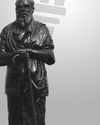
Caste System
My dear protectors of castes and caste enthusiasts - through my editorial in the ‘Kudi Arasu’ issue of 16.10.1930, I had made it clear that the castes classified long ago into four grades later multiplied into 4000 castes because of one caste mingling again and again with another caste. Quoting from the caste-related evidence of Brahmins, we had also specified that all such multiplied castes are called the ‘panchamas’. And yet some of our people who call themselves ‘velalars’ (agriculturists) assume identity as ‘Sarsudhras’, though they agree with the four grade classification as Brahmins, kshatriyas, vysyas and sudras.